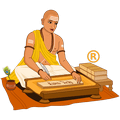











Sunrise07:11
Sunset18:08
MoonriseNo Moonrise
Moonset17:07
Shaka Samvat2218 Dhata
Vikram Samvat2353 Vijaya
Gujarati Samvat2353 Sarvadhari
Amanta MonthMagha
Purnimanta MonthPhalguna
WeekdayRaviwara
PakshaKrishna Paksha
TithiChaturdashi upto 15:28
YogaVariyana upto 18:07
KaranaShakuni upto 15:28
KaranaChatushpada upto 25:50+
Rahu Kalam16:46 to 18:08
Gulikai Kalam15:24 to 16:46
Yamaganda12:40 to 14:02
Abhijit12:18 to 13:02
Dur Muhurtam16:41 to 17:25
Varjyam19:24 to 20:50
Notes: All timings are represented in 24+ hour notation in local time of Sebin Karahisar, Turkey with DST adjustment (if applicable).
Hours past midnight are higher than 24:00 and fall on next day. In Panchang day starts and ends with sunrise.


 Mesha 31:23+
Mesha 31:23+ Bharani 24:53+
Bharani 24:53+

 Vrishabha
Vrishabha Krittika 27:07+
Krittika 27:07+

 Vrishabha
Vrishabha Rohini 29:49+
Rohini 29:49+

 Mithuna
Mithuna Mrigashirsha 08:47
Mrigashirsha 08:47

 Mithuna 08:13
Mithuna 08:13 Punarvasu 14:59
Punarvasu 14:59

 Simha
Simha Magha 23:02
Magha 23:02

 Simha
Simha P Phalguni 25:04+
P Phalguni 25:04+

 Kanya
Kanya Hasta 27:46+
Hasta 27:46+

 Kanya 16:08
Kanya 16:08 Chitra 28:21+
Chitra 28:21+

 Tula
Tula Swati 28:23+
Swati 28:23+

 Tula 22:02
Tula 22:02 Vishakha 27:51+
Vishakha 27:51+

 Vrishchika 25:13+
Vrishchika 25:13+ Jyeshtha 25:13+
Jyeshtha 25:13+

 Dhanu 26:17+
Dhanu 26:17+ P Ashadha 20:54
P Ashadha 20:54

 Kumbha
Kumbha Dhanishtha 13:20
Dhanishtha 13:20

 Meena
Meena P Bhadrapada 09:19
P Bhadrapada 09:19

 Meena
Meena U Bhadrapada 08:05
U Bhadrapada 08:05

 Meena 07:31
Meena 07:31 Revati 07:31
Revati 07:31

 Mesha
Mesha Ashwini 07:44
Ashwini 07:44

 Mesha 15:06
Mesha 15:06 Bharani 08:44
Bharani 08:44

 Vrishabha
Vrishabha Krittika 10:29
Krittika 10:29

 Vrishabha 26:15+
Vrishabha 26:15+ Rohini 12:52
Rohini 12:52

 Mithuna
Mithuna Mrigashirsha 15:43
Mrigashirsha 15:43

 Mithuna
Mithuna Ardra 18:48
Ardra 18:48In Hindu Calendar, the day starts with local sunrise and ends with next day local sunrise. As sunrise time is different for all cities, Hindu Calendar made for one city is not valid for any other city. Hence it is important to use location based Hindu Calendar, like this website. Further, each Hindu day consists of five elements, which are called angas. These five elements are -
In Hindu Calendar, all five elements together are called Panchang. (In Sanskrit: Panchang = Pancha (five) + Ang (part)). Hence Hindu Calendar which shows all five elements for each day is called Panchang. In South India Panchang is known as Panchangam.
When Hindu Calendar includes Muslims, Sikh, Christian, Buddhist and Jain festivals, including national holidays, it is called as Indian Calendar.